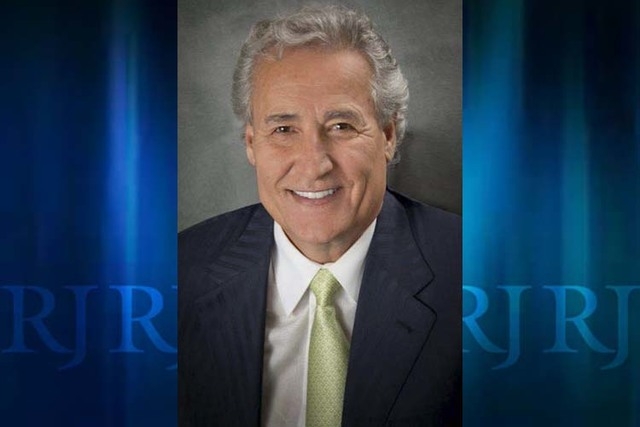Las Vegas bank backs off medical marijuana accounts

A Las Vegas bank that planned to offer accounts to medical marijuana businesses has backed off, citing the astronomical cost of complying with federal regulations.
First Security Bank of Nevada’s decision leaves some in the legal cannabis industry scrambling for a place to put their money just as they get ready to open for business. Most banks, including the nation’s largest, won’t open accounts for marijuana enterprises because the drug remains illegal under federal law.
“It’s very unfortunate,” said Jason Awad, First Security’s chairman and CEO.
Recalling his attitude when he began breaking the news to clients, he said, “The disappointing part of it is we know most of these people. They have been in the community for years, and we know they run legitimate businesses and they’re good community leaders.”
John Laub, president of the Las Vegas Medical Marijuana Association, said banking is a major challenge for the industry. Lack of access would force companies to deal solely in cash, encouraging fraud and inviting suspicion on an industry that needs public trust.
“We want transparency,” Laub said. “We think banking will make this industry a lot cleaner. It helps with the controls — cash is always a problem.”
First Security wasn’t the only local bank handling medical marijuana accounts, but it was the most prominent, people in the industry said.
Euphoria Wellness, a soon-to-open dispensary south of Las Vegas, is doing business with Kirkwood Bank of Nevada, said Joe Lamarca, Euphoria’s co-owner. Kirkwood officials couldn’t be reached for comment.
Regardless of the banking picture, marijuana will be a cash-heavy business: Credit card companies won’t process transactions at dispensaries. But Laub said, “It’d be wonderful if we could pay our taxes with checks and our employees with payroll checks.”
First Security Bank will continue doing real estate loans for marijuana businesses and will keep open the companies’ “holding” accounts, which store money not derived from marijuana sales. But Awad said the bank won’t offer “operational” accounts for depositing sales proceeds.
Although medical marijuana is legal in Nevada and an increasing number of other states, it puts banks — which are federally regulated — in a touchy legal situation.
President Barack Obama and other federal officials have said they plan to leave marijuana growers and sellers — and their banks — alone in states where the drug is legal.
But during recent confirmation hearings, new U.S. Attorney General Loretta Lynch said she does not support legalization and plans to “continue enforcing the marijuana laws.” She hinted, however, at continuing to give states some leeway.
With a new president taking office in 20 months, the uncertainty about what the federal government will do is increasing. Some candidates have suggested they would crack down on marijuana.
Awad, who bought First Security in 2011, said he saw providing services to medical marijuana businesses as part of its mission as a community bank.
In 2013 and 2014, after the Nevada Legislature legalized dispensaries, Awad got phone calls from people he knew, saying they needed bank accounts to prove their assets while they applied for marijuana licenses. Those became the “holding accounts.”
But when it came to deposits from sales, Awad said, bank officials knew they needed “airtight” safeguards thanks to Treasury Department rules that require banks to closely monitor marijuana businesses. This year, he said, the bank has had two visits from federal inspectors, which is unusual.
First Security poured resources into “compliance,” a way of using both human beings and software to prevent money laundering and other suspicious activity, which banks are required to report.
But he said First Security eventually determined it would have to charge $2,500 to $3,000 or more per month per account to cover its costs.
Banks elsewhere have made similar calculations. Marijuana Business Daily reported that MBank in Oregon decided in April to close marijuana companies’ accounts because of compliance costs.
Awad said the banks’ struggles highlight the need for the federal government to change marijuana laws. If that happened, marijuana growers and dispensers could be treated less like possible criminals and more like any other business.
Contact Eric Hartley at ehartley@reviewjournal.com or 702-550-9229. Find him on Twitter: @ethartley.